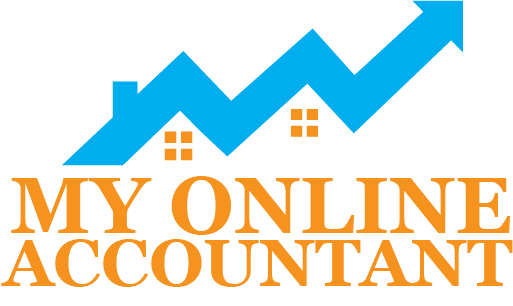End of Year Real Estate Tax Strategies: Actionable Advice Tailored to Your Needs
At My Online Accountant, we offer consultation sessions to help you reduce your tax liability and ensure your real estate business is as profitable as possible.
Sloppy bookkeeping and not knowing which numbers to track can hurt your bottom line, but in our one-on-one sessions, we show you actionable strategies that can save you thousands of dollars in taxes. Whether you want more money in your pocket or extra funds to invest, we can help. Our sessions cover the following.
How Rental Income Is Taxed
Generally, the money you earn from rental properties is passive income, meaning you don’t have to pay Social Security or Medicare taxes. This can save you close to 15%, but you need to ensure you’re reporting your income correctly. We’ll point you in the right direction.
Deductions for Landlords
You don’t have to pay income tax on all the rent you collect. Instead, just like any other business owner, you get to reduce your income by your business deductions. This includes everything you spend on your rentals such as cleaning supplies, lawn care services, and advertising.
But that’s just the tip of the iceberg. Do you drive to the property? Run to the bank to deposit rent checks? Then, you can deduct vehicle expenses. What about all the time you spend on paperwork at home? You might be able to claim a home office deduction as well.
Do you use your phone to list your property or contact tenants? Then, you can wrack up even more deductions.
In our consultation session, we’ll talk with you about your unique situation to help you identify all your deductions including start-up costs, operating expenses, and capital deductions. Then, we’ll help you find strategies to track these numbers easily.
Depreciating Capital Assets
With big expenses such as buying the property itself, replacing the HVAC system, or investing in a riding mower, you don’t deduct the entire cost in the year of purchase like you do with other expenses. Instead, you depreciate these expenses slowly over time.
Typically, the depreciation schedule matches up to the useful life of the asset. For instance, you write off the cost of a rental property in increments over a 27.5-year time span, while a window AC depreciates over a seven-year period. However, sometimes, you can qualify to write off the entire cost of some capital assets in the year of purchase.
These rules may sound complicated, but we’ll help you break down the essentials and figure out the most advantageous way to track, depreciate, and report capital expenses.
Using Passive Losses to Your Advantage
If your expenses exceed what you collect in rent, you have a passive loss, and there are a few different ways you can use a loss on a rental property to your advantage.
Depending on your situation, you may be able to use the loss to reduce your regular income and by extension bring down your tax bill. If you can’t use the loss right away, you may be able to carry it forward and reduce your taxes on rental income in the future.
The most exciting part? You can sometimes show a loss on paper, while still bringing in cash every month.
Choosing the Optimal Business Structure
By default, your business is a sole proprietorship, but for a nominal fee and with just a little paperwork, you can turn your business into a limited liability company (LLC). An LLC offers numerous legal and financial benefits, and you can even opt to be taxed as an S-corp. We can help you decide if this move is right for you.
Paying Contractors
If you pay anyone to help at your property, you can claim a deduction, and this applies to everyone from neighborhood kids who shovel snow to professionals who help with bookkeeping or marketing. But you need to report the numbers correctly and in some cases, you may need to issue 1099 forms. Intimidated? Don’t be. We can show you how to handle these essentials like a pro.
The Importance of Quality Recordkeeping
To bring all these elements together, you need a separate bank account for your rental properties and a quality bookkeeping strategy, and we’ll give you tips on how to do both.
Accurate records help you track the performance of your business and allow you to generate financial statements to show to lenders or investors. Additionally, quality recordkeeping gives you a strong defense against audits, helps with budgeting, and ensures you’re ready for tax time.
Schedule a Consultation Session Today
Are you ready to take your rental business to the next level? Do you want professional accounting advice tailored to your unique situation? Then, it’s time to set up a one-on-one consultation series with an accountant who specializes in working with landlords and real estate investment professionals.
Real estate is almost always a profitable investment, but to make the most of your efforts, you need to manage the numbers correctly. Let’s talk. Contact us today to set up a session.


Recent Comments